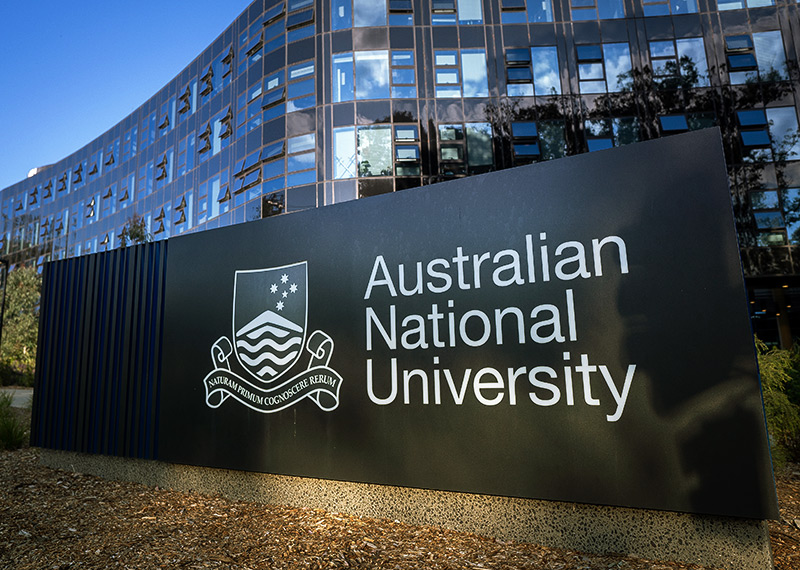Browse our range of reports and publications including performance and financial statement audit reports, assurance review reports, information reports and annual reports.
The audit objective was to assess the effectiveness of DEEWR‘s administration of the initial phases of the NP ECE. The high-level criteria used to make this assessment were the appropriateness of DEEWR‘s:
- establishment of a sound foundation for implementation, including implementation plans, monitoring arrangements and an Indigenous strategy for universal access; and
- ongoing monitoring and support activities, including assessing progress reports, making payments, maintaining relationships, improving data quality and public reporting.
The objective of this audit was to assess the effectiveness of the Tertiary Education Quality and Standards Agency’s (TEQSA’s) regulation of higher education.
Please direct enquiries through our contact page.
The objective of the audit was to assess the effectiveness of Australian Skills Quality Authority’s fraud control arrangements as the national regulator of the vocational education and training sector.
Please direct enquiries through our contact page.
The audit objective was to assess the effectiveness of the Australian National University’s governance and control framework.
Please direct enquiries through our contact page.
This audit would assess the effectiveness of the Department of Veterans' Affairs (DVA) in managing its backlog of compensation claims under the Veterans’ Entitlements Act 1986, the Safety, Rehabilitation and Compensation (Defence-related Claims) Act 1988 and the Military Rehabilitation and Compensation Act 2004.
DVA is responsible for processing veteran compensation claims for liability, permanent impairment and incapacity. As at September 2022, DVA had a backlog of 45,226 compensation claims (claims not allocated to a claims officer). The Royal Commission into Defence and Veteran Suicide’s August 2022 Interim Report included a recommendation for DVA to eliminate the claims backlog. The Australian Government agreed to the recommendation. The Australian Government provided $298 million over four years (across October 2022–23 and May 2023–24 Federal Budgets), to employ 500 additional frontline staff to process claims and maintain a skilled workforce. As at 30 April 2024, DVA had allocated 94.3 per cent of the backlog identified by the Royal Commission (41,799) and there were 73,590 claims with a claims officer for processing.
Please direct enquiries through our contact page.
This audit would assess the effectiveness of the Department of Education’s administration of the National Collaborative Research Infrastructure Strategy (NCRIS). NCRIS provides funding for national research infrastructure including physical assets (such as the National Computational Infrastructure that supports Australia’s weather and climate modelling capability) and intangible assets (such as the Australian Research Data Commons, a portal that supports researchers to access and reuse existing data). It would examine areas relating to the department’s allocation of funding and ongoing engagement with NCRIS projects.
The Australian Government has committed to provide $4 billion NCRIS funding between 2018 and 2029. The program will receive an estimated $503 million in 2024–25. Funding is allocated on the basis of roadmaps, which provide a pathway to addressing Australia’s future research infrastructure needs. As at April 2024 NCRIS supports 26 funded projects and an international membership. The projects are led by organisations including universities, publicly funded research organisations and private companies. They form a network involving over 400 delivery partnerships, and employ over 1900 technical experts, researchers and facility managers. Users relying on NCRIS range from early career researchers and small businesses, who would otherwise struggle to access world class national research infrastructure, to global research leaders tapping into the unique facilities that NCRIS provides.
Please direct enquiries through our contact page.
The objective of the audit was to assess the effectiveness of the transition of the Remote Jobs and Communities Programme to the Community Development Programme, including whether the Community Development Programme is well designed and administered effectively and efficiently.
Please direct enquiries relating to reports through our contact page.
The audit examined the efficiency and effectiveness of DEWRSBs administrative arrangements for the Work for the Dole Programme. The audit focused on the Community Work Coordinator tender assessment process, selection of projects, contract management arrangements and the mechanisms used for measuring the performance of the Programme against its objectives.
The audit reviewed whether DEWR is efficiently and effectively managing the provision of entitlements to eligible former employees under the Employee Entitlements Support Scheme (EESS) and its replacement, the General Employee Entitlements and Redundancy Scheme (GEERS). The audit sought to determine whether DEWR had a mechanism to ensure that claims were properly assessed, taking into account the prevailing risks, whether performance information was adequate, whether relationships with claimants and insolvency practitioners were managed appropriately and whether a cost-effective recovery strategy was in place.
This audit reviewed the efficiency and administrative effectiveness of case management in the Department of Employment, Education and Training (DEET) to identify good practices and any areas in need of improvement.



